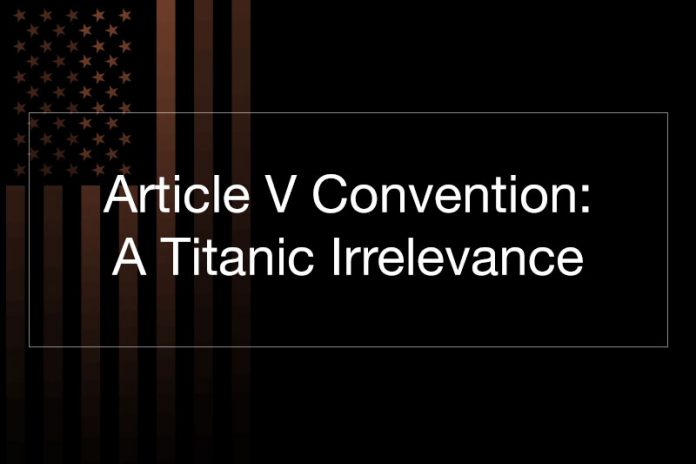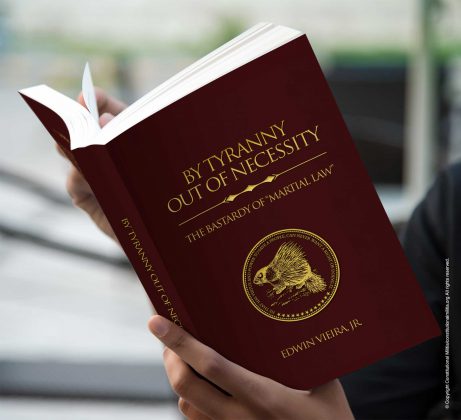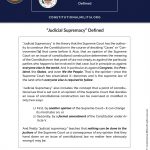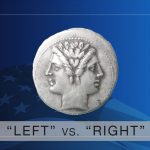Last Updated on November 4, 2020 by Constitutional Militia
The more I inflict upon myself the details of the on-going, extensive, and increasingly acrimonious debate about the supposed merits or demerits of what is called an “Article V Convention of the States”, the more my mind returns to the scene I have imagined taking place on Titanic. Having struck the iceberg, the great liner is down fifteen degrees by the head, and sinking fast, while in the Grand Salon her designer Mr. Andrews, Captain Smith, and a gaggle of marine engineers are discussing a new ship, to be built according to a new design which supposedly will obviate the flaw in Titanic that contributed to her demise. While in theory this discussion might have been very illuminating to the participants, it obviously would otherwise have been an irrelevance which could have saved neither Titanic nor a single soul who went down with her.
This, it seems to me, presents a perfect parallel to the present “Article V Convention” debate—a debate so completely out of touch with the actual situation now confronting this country, that one wonders how anyone could take it seriously as an observer, let alone participate in it. Consider the following:
• First, the “Article V Convention” debate does not address the immediate issue of the looming national economic crisis about which every informed observer is warning this country in no uncertain terms. The General Government is buried under some 200+ trillion “dollars” worth of unfunded long-term liabilities. This is an unpayable sum by anyone’s calculus. The failure to pay it will have catastrophic economic, social, and political consequences. The problem will not be solved by Congress. In fact, Congress is making the situation worse. The debt is the great rent in America’s ship of state through which economic dissolution is pouring in. Congress proposes to fix this problem by borrowing more money which can never be repaid. This is equivalent to the lunatic notion that blowing off the rear quarter of Titanic would have saved the ship by allowing the water surging in at the bow to flow out through the new hole at the stern!
If this were not enough, almost all Americans are utterly unprepared to deal with the consequences of the depression, hyperinflation, or combination of the two which collapse of the national economy will cause. Nothing anyone has written in favor of an “Article V Convention” has suggested how any new amendment to the Constitution would deal with this virtual Marianas’ Trench of unpreparedness. And especially how it would deal with this danger right now, not at some distant point in the future after the crisis has broken out and hurled the entire country into chaos.
And if that were not more than enough, the top noises in the Disgrace of Columbia are even now feverishly preparing to impose so-called “martial law” throughout America when the economic catastrophe strikes—in which event, of course, the Constitution will effectively (if illegally) be set aside, and all talk of an “Article V Convention” (or of the ratification of amendments proposed at such a shindig) will become blather even more worthless than it is now.
• Second, even if some part of an “Article V Convention” were addressed to the impending national economic crisis, the process could not be made to work in time. Time may not be everything; but everything depends upon time. The convention has to be called by the requisite two thirds of the States; it has to be held, for who knows how long; and the amendments it proposes have to be submitted to the States for ratification. One or more of the amendments necessary to deal with the crisis must be ratified by three fourths of the States. Each and every such amendment must then be enforced. How many years all this will take, and who will see that it is accomplished (especially with respect to enforcement), is anyone’s guess. And guess is the appropriate word, because no one can possibly predict when, how, and to what end this pie-in-the-sky process can and will be put into effect. We do not have to guess, however, whether the national economic crisis is coming sooner, rather than later—and certainly sooner than any “Article V Convention” could produce any useful amendments to the Constitution which States in the requisite number will actually have ratified.
• Third, one of the more outspoken exponents of an “Article V Convention” (Timothy Baldwin) himself tells us that “[i]t is time for the States to ‘take matters into their own hands’ and quit waiting for Congress to fix itself.” Yes, indeed, it is high time for that. But the question remains, how best to do it? For quite a while, I have been urging revitalization of “the Militia of the several States” as the proper way for the States “to ‘take matters into their own hands’” both in perfect accord with the Constitution and in a manner which will have an immediate and beneficial effect. It should be self-evident how, in both principle and practice, revitalizing the Militia could solve the pressing problems an “Article V Convention” could not possibly solve (and which its proponents do not even claim it could solve).
Not only is revitalization of the Militia the best way to overcome the unpreparedness of the American people as a whole to cope with the effects of a national economic crisis, it is the only way, almost by definition. If there are constitutional institutions, other than the Militia, which are designed to take in the entire adult population of this country—and organize, equip, and train that population to deal with varied Local, State, and National emergencies—I should like to know what they are. Certainly, no new amendment of the Constitution has been suggested by the proponents of an “Article V Convention” which would address the question of Americans’ unpreparedness. So, even if an “Article V Convention” were held, the Militia would nevertheless need to be revitalized for the purpose of overcoming that deficiency as quickly and thoroughly as possible.
In addition, revitalization of the Militia is the only means available to obviate the threat of “martial law”. As my forthcoming book, By Tyranny Out of Necessity: The Bastardy of “Martial Law”, will explain, “martial law” as most Americans understand it is anti-constitutional bunkum. The only “martial” institutions to which the Constitution delegates the authority and responsibility “to execute the Laws of the Union” are the Militia. So the only constitutional form of “martial law”—that is, “law” administered in a fully constitutional manner by some “martial” institutions—must be executed by the Militia, and only the Militia or only subject to the Militia’s control. The Militia, of course, are comprised of We the People themselves. So, if constitutional “martial law” had to be put into effect as the result of a national economic crisis, it would be controlled by the People themselves, and on that basis would hardly pose a threat to the People, unless the People were so politically psychotic that they would go about oppressing themselves. Again, no new amendment of the Constitution has been suggested by the proponents of an “Article V Convention” which would address the question of “martial law” (and no amendment is needed, either, because the Constitution already provides sufficient authority to the Militia in that respect). So, even if an “Article V Convention” were held, the Militia would nevertheless need to be revitalized for the purpose of assuring that “martial law” remained under the People’s control.
It also should be obvious that revitalizing the Militia avoids the worst practical problems associated with an “Article V Convention”. In contrast to the process under Article V: (i) Under the present Constitution revitalization of the Militia can be accomplished with no need for any constitutional amendment, convention, or other extraordinary proceeding—a single statute in each State being sufficient. (ii) Revitalization of the Militia does not require two thirds, or three fourths, or even a majority of the States to act in unison, but can be accomplished State by State, one State at a time, no matter what other States do or refrain from doing. (iii) Revitalization of the Militia does not require any participation by Congress. And (iv) revitalization of the Militia involves direct participation by all of We the People, not just the few who might be selected—by Heaven knows what sort of political swindle—as delegates to a convention.
• Fourth, even if all the warnings prove to be wrong, and no national economic crisis breaks out after all, the Militia will still have to be revitalized. The proponents of an “Article V Convention” all claim that they wish to preserve the merits of the original Constitution, and simply pear away by amendments the accretions of usurpation and tyranny which have developed over the years, particularly at the level of the General Government. If they are telling the truth, then they must want to preserve—and to see properly enforced—the Second Amendment and the Militia Clauses of the original Constitution. For none of them has suggested that some new amendment should repeal those provisions.
What, though, does the Second Amendment tell us? That “[a] well regulated Militia” is “necessary to the security of a free State”. “Necessary”, not optional. Which is also why the original Constitution incorporates the Militia as permanent parts of the federal system. Are the Second Amendment and the original Constitution both wrong? If not, then why are the proponents of an “Article V Convention” not expending at least some of their considerable energies to revitalize the Militia? Why should anyone concern himself with amendments to the Constitution, the value of which is debatable, when the institutions which the Constitution describes as “necessary”, and the value of which is therefore beyond debate, remain moribund in every State? Should not everyone’s priority be to revitalize the “necessary” institutions before taking on arguably unnecessary (and perhaps counterproductive) tasks? Or are we to accept the glaring self-contradiction that, although the Militia are “necessary”, nevertheless no need exists to revitalize them? Can the Militia be “necessary” and yet “unnecessary” at the very same time?!
Perhaps some proponents of an “Article V Convention” do not believe that “[a] well regulated Militia” is “necessary to the security of a free State”. If so, they should candidly describe what they do consider “necessary” for that purpose, and just how the new amendments they propose will achieve that goal even while the Second Amendment and the Militia Clauses of the original Constitution are left unenforced. Inasmuch as the overriding purpose of the Constitution as a whole is precisely to guarantee “the security of a free State” to all Americans, it would seem that if the Second Amendment and the Militia Clauses are not to be enforced, then something absolutely needs to be included in the compendium of new amendments in order to perform their erstwhile function. I, for one, wait with breathless anticipation for the proponents of an “Article V Convention” to describe the new amendments which they claim will serve that end.
• Fifth and last, NewsWithViews readers have been instructed by one of the foremost advocates of an “Article V Convention” that we all need to be “pragmatic”. Now, one might dismiss such a recommendation with the old saw that “the problem with pragmatism is that it does not work”. But, being scientifically trained myself, I am inclined to perform the experiment and see if the results predicted by theory are confirmed in practice. The Constitution tells us that “[a] well regulated Militia” is “necessary to the security of a free State”. To test that theory, one needs to have “[a] well regulated Militia”. To have “[a] well regulated Militia” today requires the revitalization of the Militia, State by State. Once that experiment has been performed, either the States which revitalize their Militia will achieve, or at least move in the direction of, “the security of a free State”, or they will not. The experiment will verify or falsify the theory. And that fairly quickly, in decided contrast to the elongated process of an “Article V Convention”. So, as “pragmatists” to the extent of being willing to test the theory of “pragmatism”, why do we not perform the experiment of revitalizing the Militia—even in just a single State —and see what happens? If the experiment succeeds, it may obviate the supposed need for an “Article V Convention” entirely, or at a minimum put into sharper focus than we have now what ought to be done through such a convention. If the experiment fails, it may convince the opponents of an “Article V Convention” to change their minds—for if the Constitution could be so wrong as to describe the Militia as “necessary to the security of a free State” when they are not, it could very well be wrong in many other particulars, and therefore might need a comprehensive overhaul.
In any event, let us not try to “fix” a tool which is not broken; and let us determine whether the tool is really broken by putting it to its prescribed use, and gauging the results against the promises made by the manufacturer.
To be fair to the proponents of an “Article V Convention”, I must add that most of the opponents of such a convention, too, seem to have missed the constitutional point I am trying to make. America’s problem is that We the People who ordained and established the Constitution have defaulted on their sovereign responsibility to enforce it. And not just indirectly through their careless selection of incompetent and even disloyal “representatives”. But by themselves directly. After all, the Constitution explicitly provides for, and expects, its enforcement by the People through delegation to the Militia of the authority and responsibility, the power and the duty, “to execute the Laws of the Union”. To execute that power and perform that duty the People need to have their Militia extant, operative, and effective. This can be accomplished without any amendments, conventions, or other essentially “Star Trek” science-fiction schemes to refashion the Constitution. But it will require that the People demand it.
©2014 Edwin Vieira, Jr. – All Rights Reserved.





































